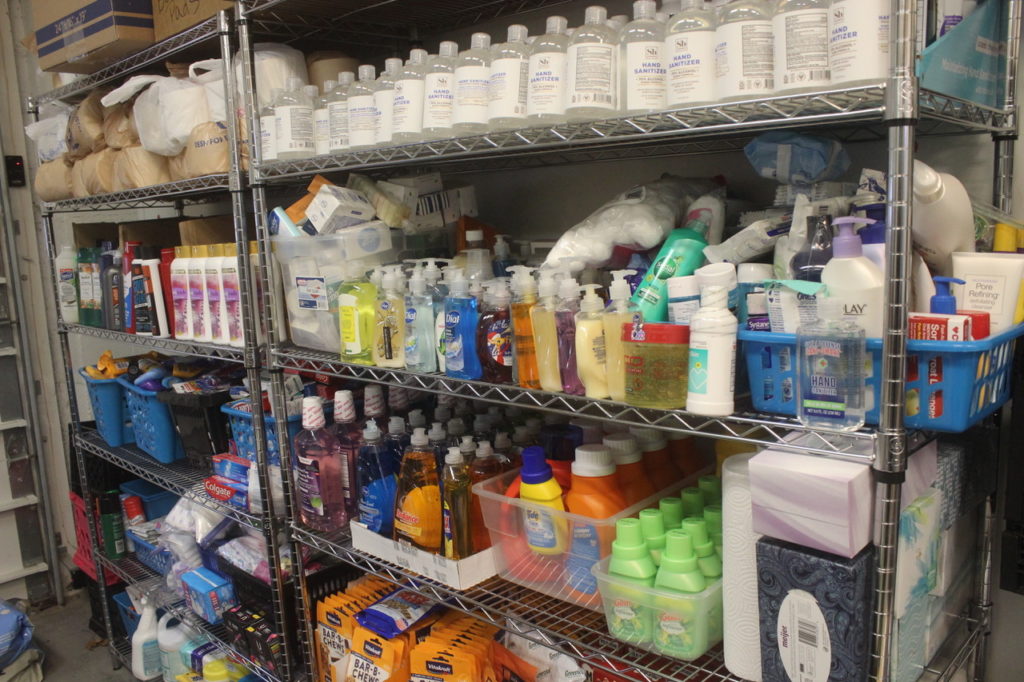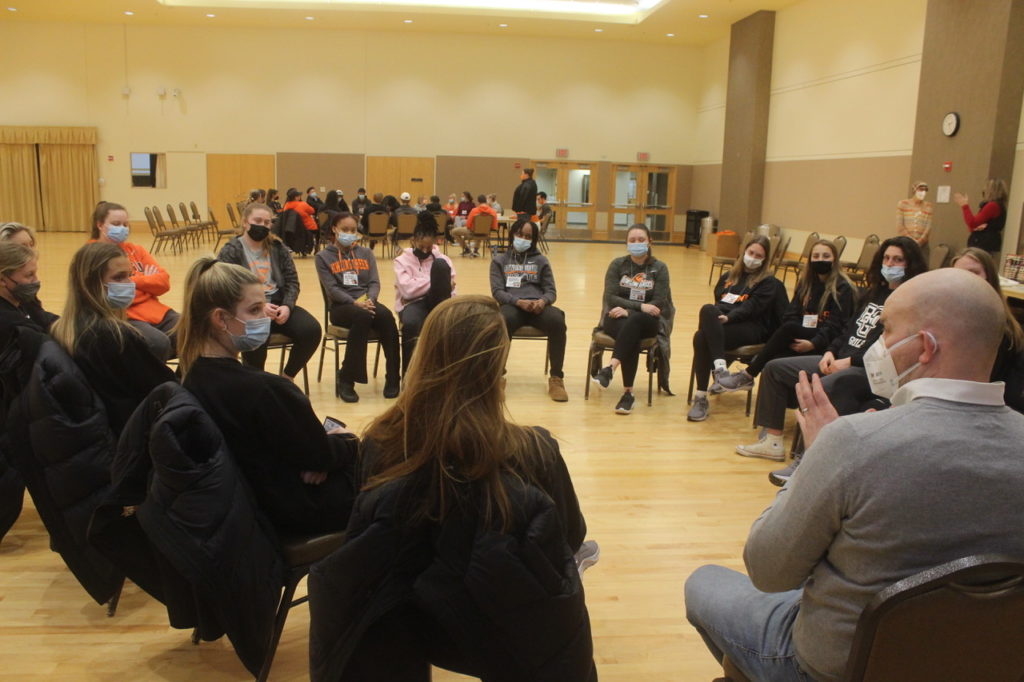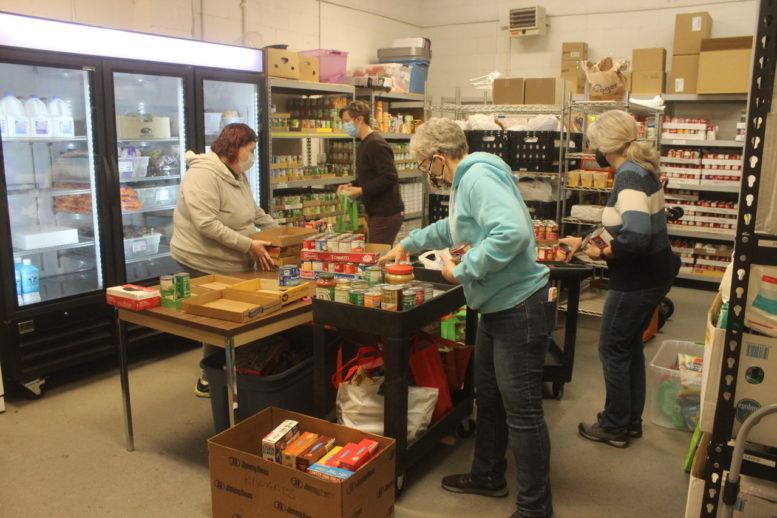By DAVID DUPONT
BG Independent News
Mid-afternoon on Martin Luther King Jr. Day, a handful of volunteers were hard at work at the Brown Bag Food Project.
The project’s annual MLK Day food canvass had wound up at 3, and now they were organizing and shelving the bounty that had been collected.
When asked if she had any idea how much was collected, Peg Holland, a Brown Bag board member, gestured around her: “Look at the shelves.”
They were full.
And that’s good because the demand for the food pantry’s services has been high. Brown Bag provides emergency food and other items to tide people over for a week.
On Friday, Holland said, they set a record when 26 families showed up at the office at 530 Sand Ridge needing food. Many others need help but are stuck at home with COVID. Holland said those folks are asked to arrange for someone to pick up their delivery and have a non-contact drop off.

The drive collected more than food. “People did really well sending hygiene products this year and that helps us out immensely, just as much as the food does,” she said.
Those are items that are not covered by SNAP.
Others made monetary contributions, she said.
The success came despite Saturday’s change in schedule. After last year when all donations had to be dropped off, Brown Bag was sending volunteers into neighborhoods to collect food.
However, with a shortage of volunteers on Saturday and bitter cold weather, the canvassing did not take place.
Instead they used the time to organize their operations. The office was moved from the front of the building into an interior space. Few people need to come into the office because deliveries are down outside. That COVID adjustment to their procedures will be permanent, Holland said.
Sunday “was a beautiful day,” she said. So people hit the streets, and for the first time, volunteers canvassed on MLK Day itself.
“We got a lot more donations when they went through to canvass,” Holland said.
The MLK Day collections are shared with other food pantries.
Many of those volunteers came from BGSU, including members of the volleyball team.
BGSU’s MLK Day of Service was striving to move back to normal. Last year, it was a casualty of COVID, and the two previous years it suffered because so few students were on campus because of the now defunct Winter Term.
Even during those years, though, Brown Bag benefited from help from campus.
Poverty simulation at BGSU
Among the on-campus activities during the MLK Day of Service was a poverty simulation run in the student union ballroom.
The office of COVID Engagement on campus purchased a kit in 2019 and ran a simulation in spring of that year.
Justin Rex, a political scientist worked with V. Rosser, director of the Center for Civic and Community Engagement to acquire the kit. He teaches a course on politics, policy and poverty, and organized Monday’s simulation.
[Read related story: BGSU poverty simulation hits close to home for some participants]

Poverty was an issue close to the heart of Martin Luther King Jr., he said, so running the simulation seemed fitting.
He said his understanding was that because of COVID there were fewer community projects for students to engage in.
The simulation has participants move around the room to various stations representing the agencies poor people have to deal with including welfare office, social services, schools, even a pawn broker, as they struggle to keep their lives on track.
Afterward, Rex encourages students to get involved and work to alleviate the problems revealed by the simulation. That can involve working with organizations addressing poverty, and it can mean taking political action to support candidates who propose solutions to these problems.
Payton Gorman, from Fort Wayne, said she was registered for the simulation because she’s a track athlete. She found it interesting, but had concerns.
The simulation calls for participants to play certain roles, and she felt some traded on racial stereotypes, such as the single Black mother, or the Latino family.
As an African American , she found this situation almost a microaggression.
Rex said that the families are based on demographic research, but he would look into the issue.
Jazz Gaiters, Gorman’s teammate from Worthington, said she agreed in part with her criticism. Still, she added, “this is something that needs to be talked about.”
In a country like the United States, she said, “no one deserves to live in those kind of situations.”

